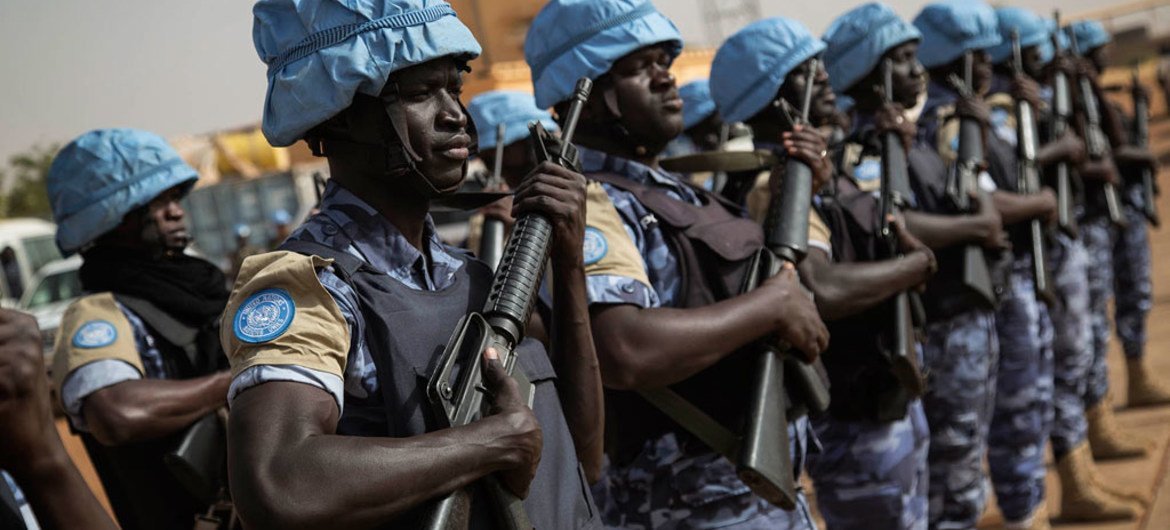On June 30th, Resolution 2690 was issued by the United Nations Security Council. This resolution marked the conclusion of the mandate of the United Nations Multidimensional Integrated Stabilization Mission in Mali (MINUSMA). As per the resolution, the mission is set to conclude its tasks within six months, specifically by December 31st of the following year, and transfer them to the Malian authorities. However, it is important to note that this decision, made at the request of the Malian government, does not accurately reflect a state of security stability within Mali. The country continues to face significant threats from terrorist organizations, thus indicating that this step will directly impact Mali’s security and stability, as well as the security of its neighboring countries, particularly Libya.
Multiple Motives
There are several reasons that led the United Nations Security Council to terminate the mission of MINUSMA in Mali, and the most important ones include:
- Ongoing pressure from Bamako: In recent times, the Malian government has strongly voiced its criticism of the mission. During a speech to the United Nations Security Council on June 16th, Malian Foreign Minister Abdallah Diop expressed that the mission had failed to fulfill its mandate and urged for its prompt withdrawal. The relationship between Bamako and the UN mission has considerably deteriorated following the military takeover in 2020. In response, the United Nations initiated a campaign to denounce the local authorities’ policies regarding the actions of international troops within the mission, as well as their inability to provide adequate protection against attacks targeting the mission. These factors have played a significant role in the deaths of 174 mission soldiers since 2013.
Tensions reached a climax when, on February 6th, Mali made the decision to expel Guillaume Nguiro-Kamdimoko Andjalli, the head of the Human Rights Division of the mission. The authorities labeled him as “undesirable” and demanded his departure from the country within 48 hours, accusing him of engaging in “destabilizing and destructive acts.” In response, the United Nations High Commissioner for Human Rights, Volker Türk, expressed his profound regret regarding this decision. Türk stated, “I am deeply troubled by the intimidation and harassment Guillaume Nguiro-Kamdimoko Andjalli has faced on social media in recent months.”
- The diminished capacity of UN forces to fulfill their duties arises from the numerous restrictions imposed by the Malian government. These restrictions have severely limited the UN forces’ ability to enhance security, foster stability, and protect civilians within Mali. Importantly, these restrictions played a pivotal role in the Security Council’s decision to revise its policy towards the mission. Initially contemplating an extension of the mandate with certain task modifications, the Council swiftly responded to the Malian government’s request for the mission’s withdrawal.
- Growing reliance on “Wagner” in Mali: Multiple reports indicate that the reduced role and responsibilities of MINUSMA forces in Mali coincide with the arrival of elements from the Wagner Group in Bamako, upon the request of the Malian government. The government seeks their assistance in combatting terrorist organizations and quelling the prevailing chaos in Mali. It is important to note that Wagner’s influence in Mali has expanded following the French military’s withdrawal in mid-2022. With the support of the Malian government, the group has reached the Ménaka region in northeastern Mali, where they have assumed control of a military base previously handed over by the French forces to the Malian army.
- Conveying messages to the domestic audience: The military government in Bamako appears to be leveraging its position regarding the presence of UN forces on the political front, particularly after the recent adoption of a new constitution through a referendum held on June 18th. This strategic move aligns with the upcoming presidential elections slated for February 2024. The government is actively seeking to showcase its efforts in asserting political autonomy in response to perceived international dominance. Its objective is to consolidate its position in preparation for the presidential elections, although opposition forces accuse it of exploiting the elections to prolong its grip on power.
Potential Repercussions
The withdrawal of the UN mission is expected to result in a state of turmoil and instability in Mali and its neighboring countries. This can be discussed as follows:
- Escalation of terrorist attacks: The withdrawal of UN forces is poised to create a security void, particularly in light of the French forces’ departure from the region. It is plausible that neither the Wagner Group nor the Malian forces will be capable of filling this vacuum. As a result, terrorist organizations, notably ISIS, may exploit this situation to strengthen their presence in the area and establish it as a base for operations in the Sahel and North Africa region. The Sahel region ranks among the highest globally, second only to Afghanistan, in terms of the frequency of terrorist attacks. Therefore, it is highly likely that terrorist organizations will endeavor to carry out further attacks in the countries of this region in the near future.
- Expansion of private military companies’ influence: With the potential challenge of establishing security control in northern Mali post the UN forces’ withdrawal, the Malian government might explore the involvement of private military companies, particularly those from China, in assuming a security role in the region. This becomes particularly significant as the Wagner Group confronts the task of withdrawing from the Sahel region amidst escalating tensions with Russia, following the rebellion that was promptly contained on June 23rd.
- Growing likelihood of Algiers Agreement cancellation: Particularly notable is the strong backing of the UN mission in support of the peace and reconciliation agreement signed in 2015 in Mali’s capital, bringing together rebel movements from the Azawad region in the north and the central government in Bamako, with mediation from Algeria. However, apprehensions arise regarding certain rebel groups potentially impeding the ongoing political developments following the referendum held on June 18th, now that the mission is withdrawing. The National Movement for the Liberation of Azawad has hinted at the implicit cancellation of the Algiers Agreement due to the mission’s departure.
Chronic Crisis
In light of these circumstances, it can be inferred that Mali will encounter heightened security threats in the forthcoming phase, especially if the ongoing political arrangements are not concluded with the scheduled presidential elections in February 2024 or if certain groups reject the potential election outcomes. Consequently, the withdrawal of UN forces from Mali will adversely affect the political advancements within the country.


